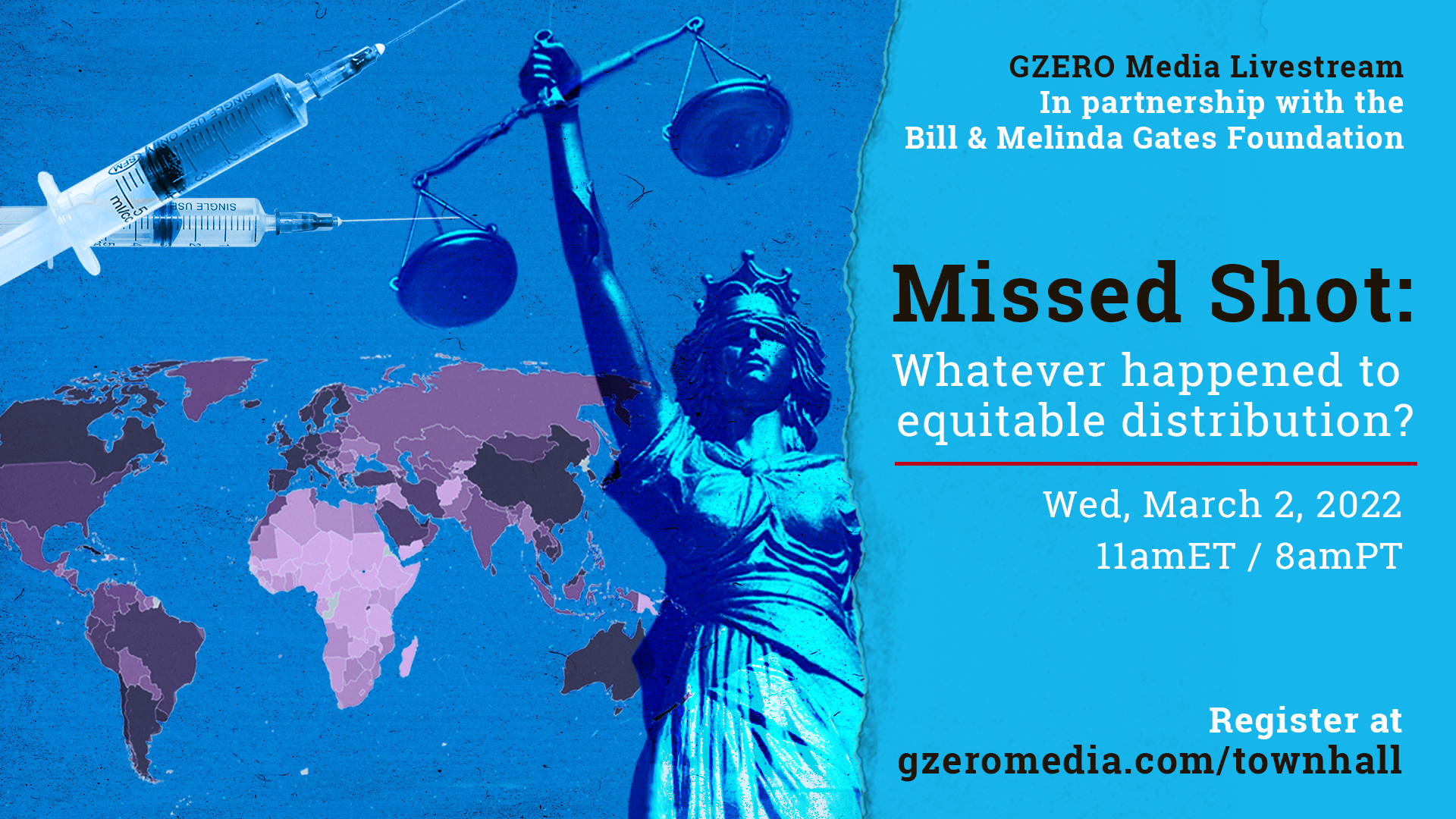As the world marks the two-year anniversary of the COVID-19 pandemic, most regions are still in the throes of outbreaks, and global vaccination rates are inconsistent – high in high-income countries, low in low-income countries.
How did this happen and why? Despite words of solidarity and a commitment to equity in the early days of the pandemic, the world has not seen that promise fulfilled. Can the gap be rectified to end the acute phase of this pandemic? And what has to be done to solve this for the future?
Participants:- Natasha Kimani, Research and Strategy Lead, Africa No Filter (moderator)
- José Manuel Barroso, Board Chair, Gavi, The Vaccine Alliance
- Ian Bremmer, President and Founder, Eurasia Group and GZERO Media
- Dr. John Nkengasong, Director, Africa Centers for Disease Control (Africa CDC)
- Melanie Saville, Director, Vaccine Research and Development, CEPI
- Mark Suzman, CEO, The Bill & Melinda Gates Foundation
